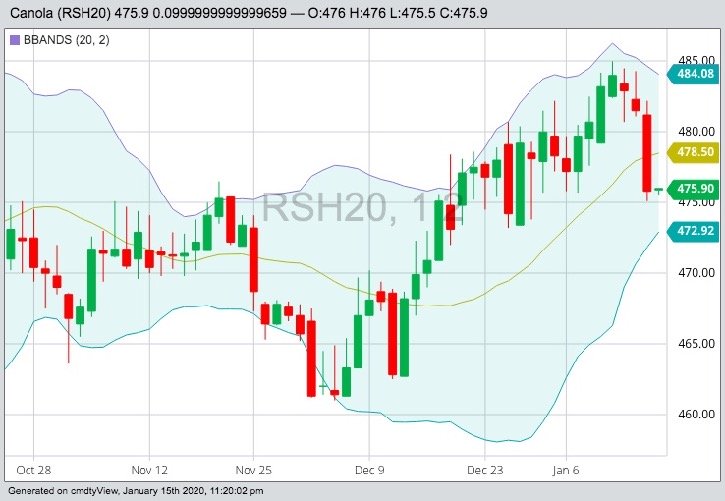MarketsFarm — ICE Futures canola contracts tested long-time chart resistance during the week ended Wednesday, but failed to break higher and retreated to hold rangebound overall.
The Phase One trade deal signed Wednesday between the U.S. and China failed to give the grain and oilseed markets a boost, as the vague details of the actual agreement do not live up to some of the claims coming out of the White House.
“There is a lack of confidence in the marketplace as to what this all means right now,” MarketsFarm Pro analyst Mike Jubinville said of the trade deal. Industry participants were still waiting to see China step forward with large purchases of soybeans, he added.
Read Also

Speculative net long position grows in canola
Speculative fund traders have added to their recently established net long position in canola, according to the latest Commitments of Traders report from the United States Commodity Futures Trading Commission (CFTC) released Friday, Feb. 27.
With larger-than-expected U.S. soyoil stocks also reported on Wednesday, the resulting losses in the U.S. futures spilled into the canola market.
Canola futures broke below a number of notable trend-line support levels on Wednesday, which could open the door to additional losses, according to Jubinville.
Jubinville placed nearby support in the March canola contract at around $470-$473. It settled Wednesday at $475.80, after reaching a three-month high of $485 only four days earlier.
“This is still a sideways trending market… nothing has changed,” said Jubinville.
While confirmed Chinese soybean purchases or weather problems in South America could spark the oilseed markets higher, he expected the market may have peaked at least until attention returns to the new crop and North American spring seeding.
— Phil Franz-Warkentin reports for MarketsFarm, a Glacier FarmMedia division specializing in grain and commodity market analysis and reporting.
















